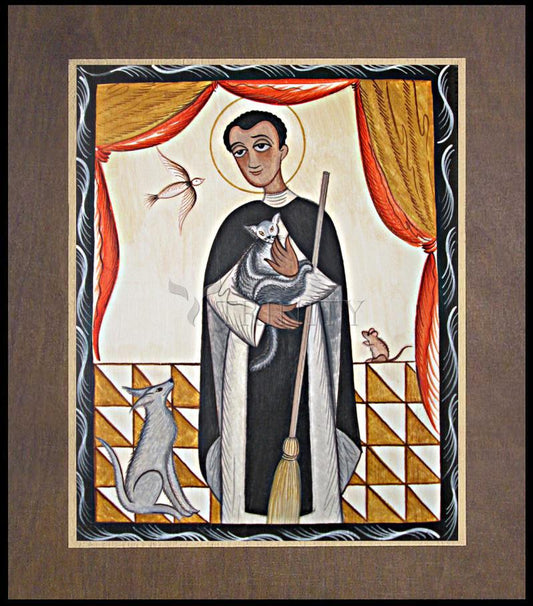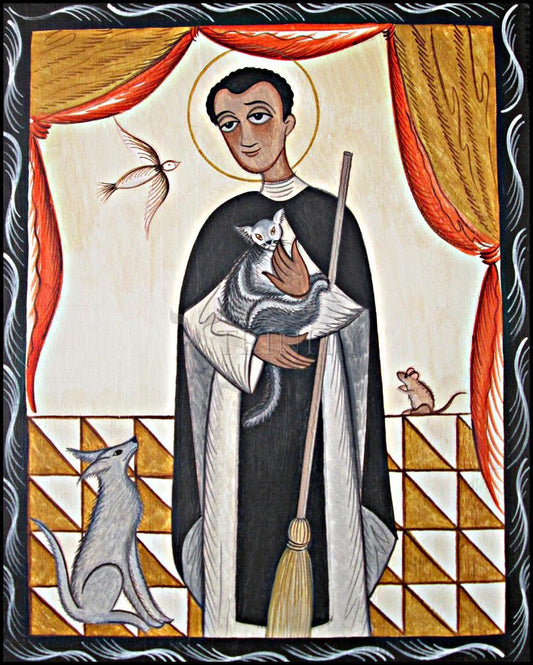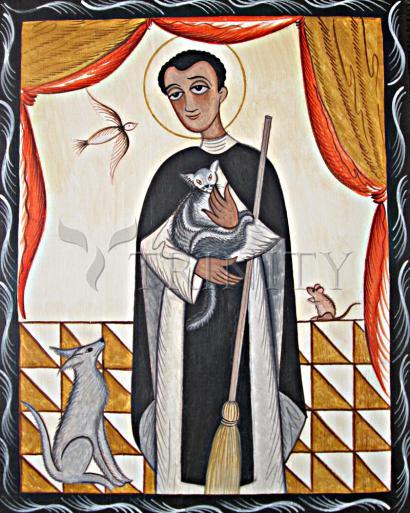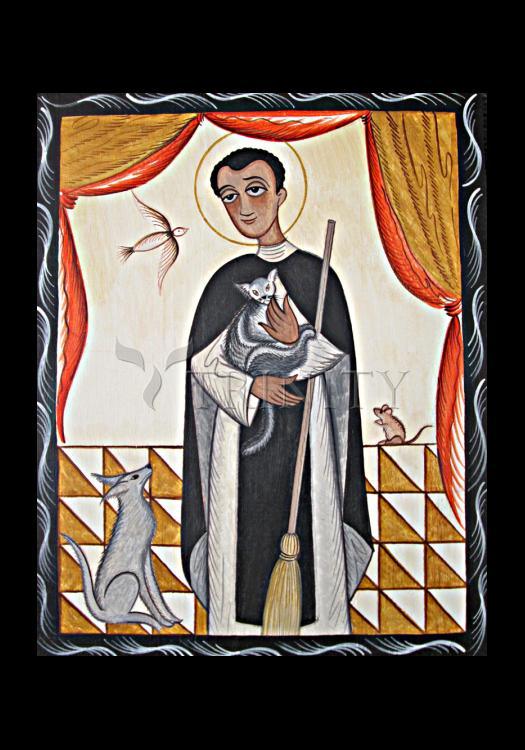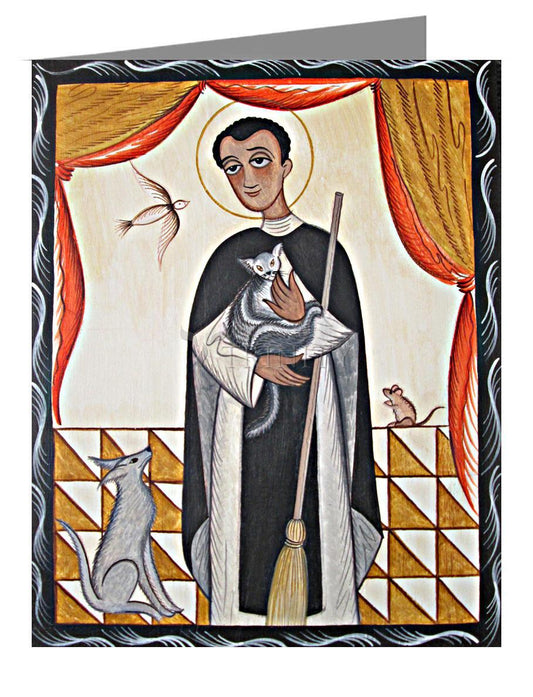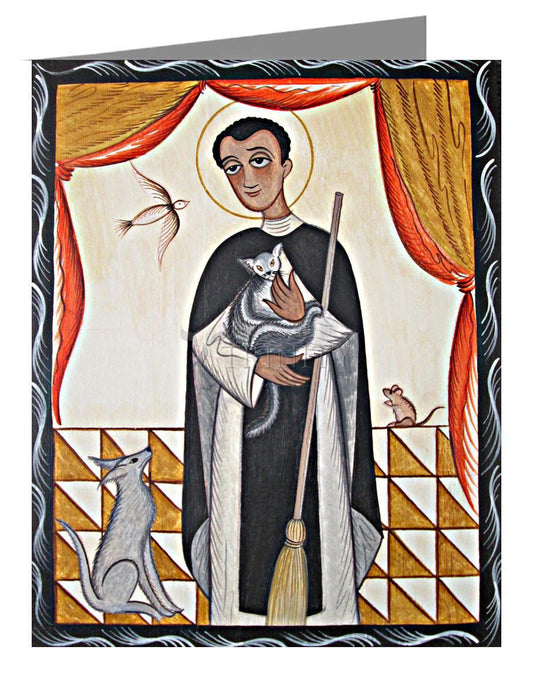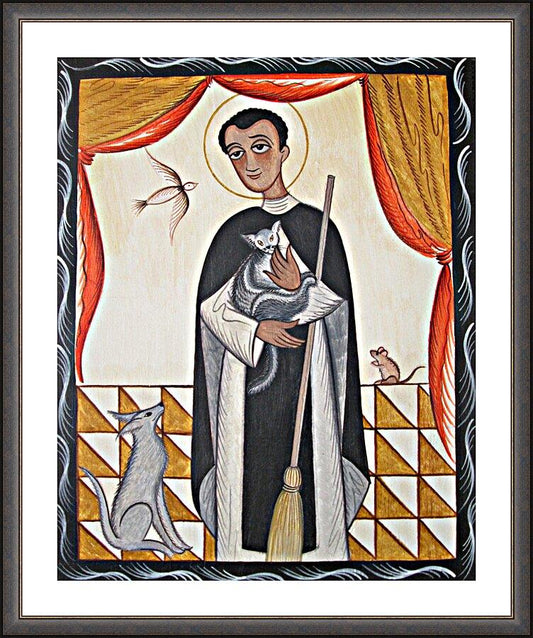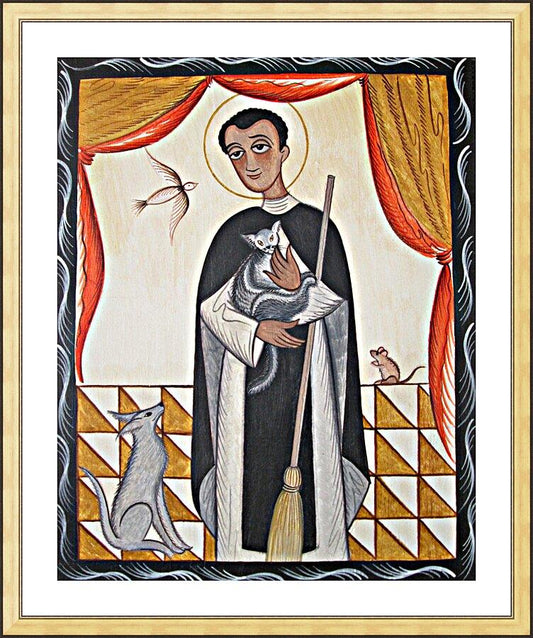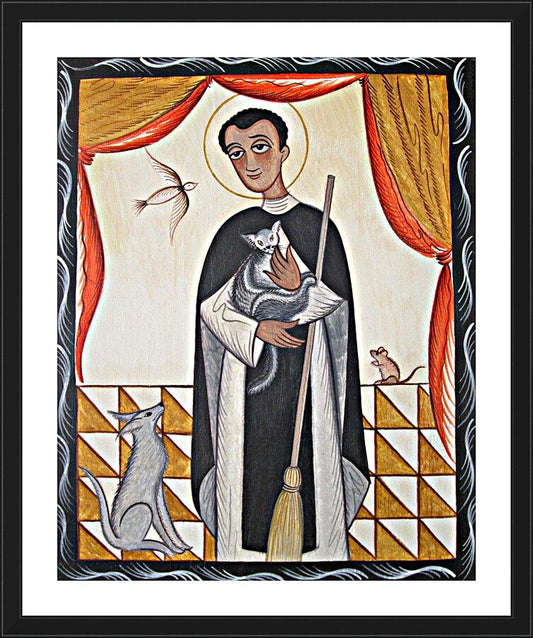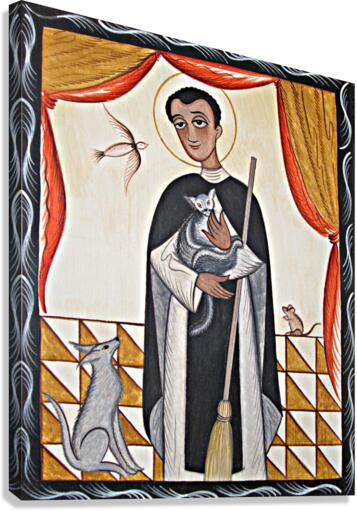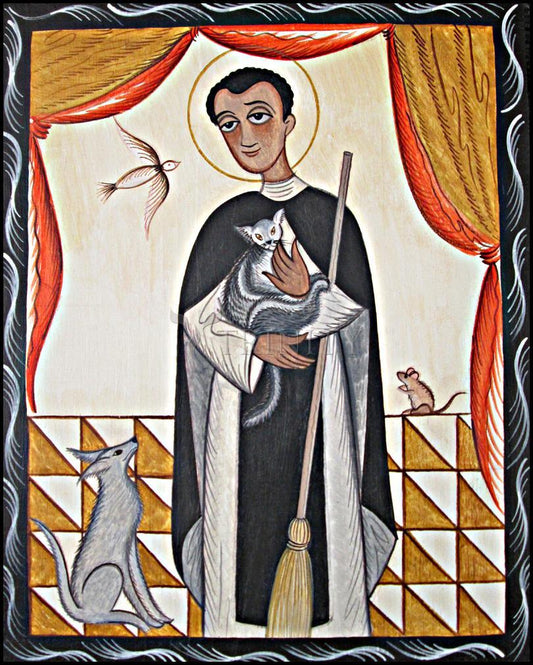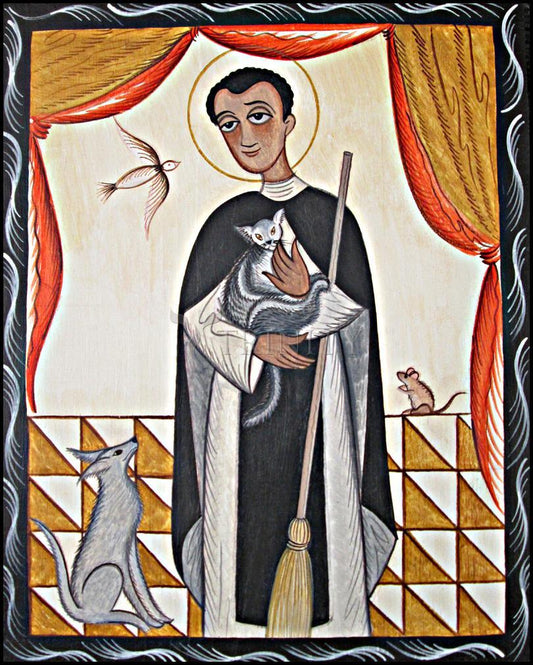Martin de Porres was born in Lima Peru in 1579, the illegitimate son of John de Porres, a Spanish knight, and a negro free-woman named Anna. Martin's father acknowledged him as his son after eight years, but then abandoned the family when their second child was born. Young Martin was brought up in poverty, compounded by having to bear the stigma of mixed blood. At the age of 12, he was apprenticed to a barber-surgeon where he learned to cut hair and draw blood for the accepted medical procedure of the day - bleeding a patient - and to prepare and administer medicine.
When Martin was fifteen, he began working with the Dominicans (the Order of Preachers founded by St. Dominic) as a lay helper and, eventually became a professed Lay Brother. He tended the sick in the monastery infirmary, which he kept well-stocked through ingenious means, such as frugality of material goods for his fellow Dominicans so as to provide necessities for the care and comfort of the sick and infirm. Also, Martin was responsible for the daily distribution of food alms for the needy in the town, which often times was supplied through miraculous intervention. (One of his closest friends was another Dominican, St. Rose of Lima, canonized in 1671, the first saint of the new world.)
Because of his social station as a person of mixed blood, there were many times when he was ridiculed and debased. But Martin never retaliated. All of the insults and denigration aimed toward him were offered to God as sacrifice. It is said that his "profound and consummate humility was based on his knowledge of the greatness of God," and made him ever-aware of avoiding any form of pride. For example, Martin insisted upon wearing one habit until it disintegrated into mere threads and fibers, opposing attempts to buy him a second one.
Martin was a very spiritual man, spending time in prayer, sometimes surrounded by a brilliant light, and doing severe penance several times a day. There are many recorded instances of when his brother monks found him in the chapel before the Blessed Sacrament so filled with love for Jesus that he levitated in pure ecstacy, In other instances, Martin was able to bi-locate, and pass through locked doors in order to help a sick or dying person in another part of the monastery. He was able to know if the person in his care would or would not recover. If he tended to them solicitously, they knew they would not recover, because Martin was very patient and caring with the dying. But, if they felt "neglected" by him, he told them to take heart because it meant they would be well soon.



